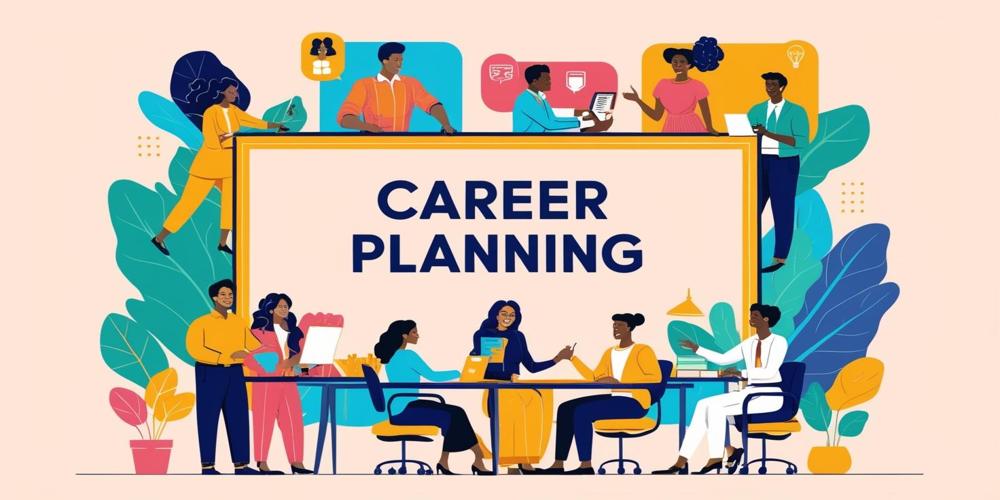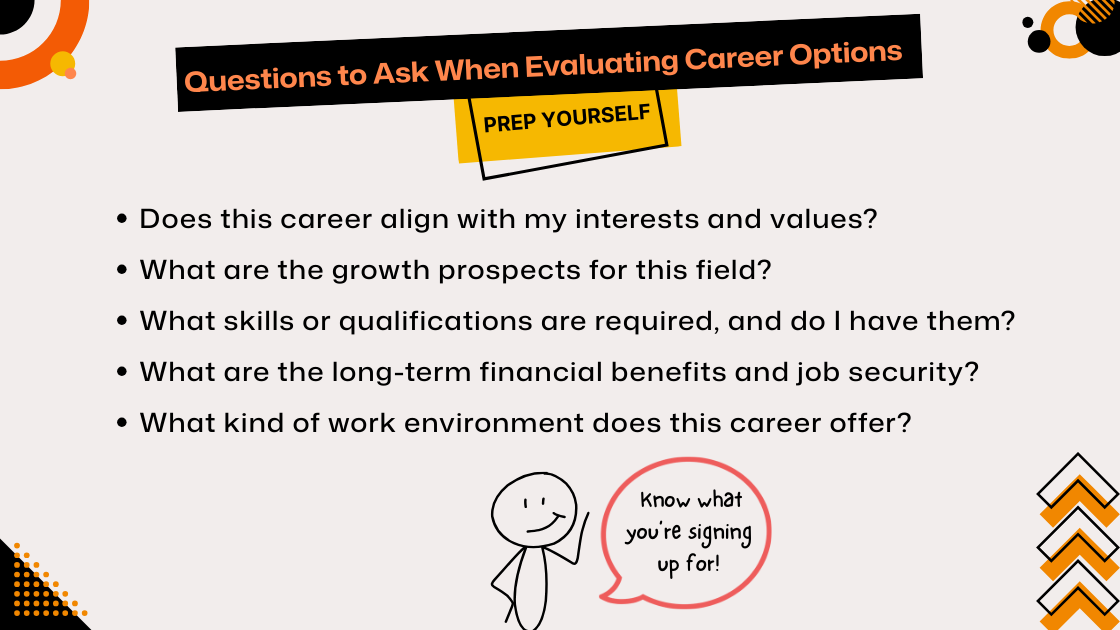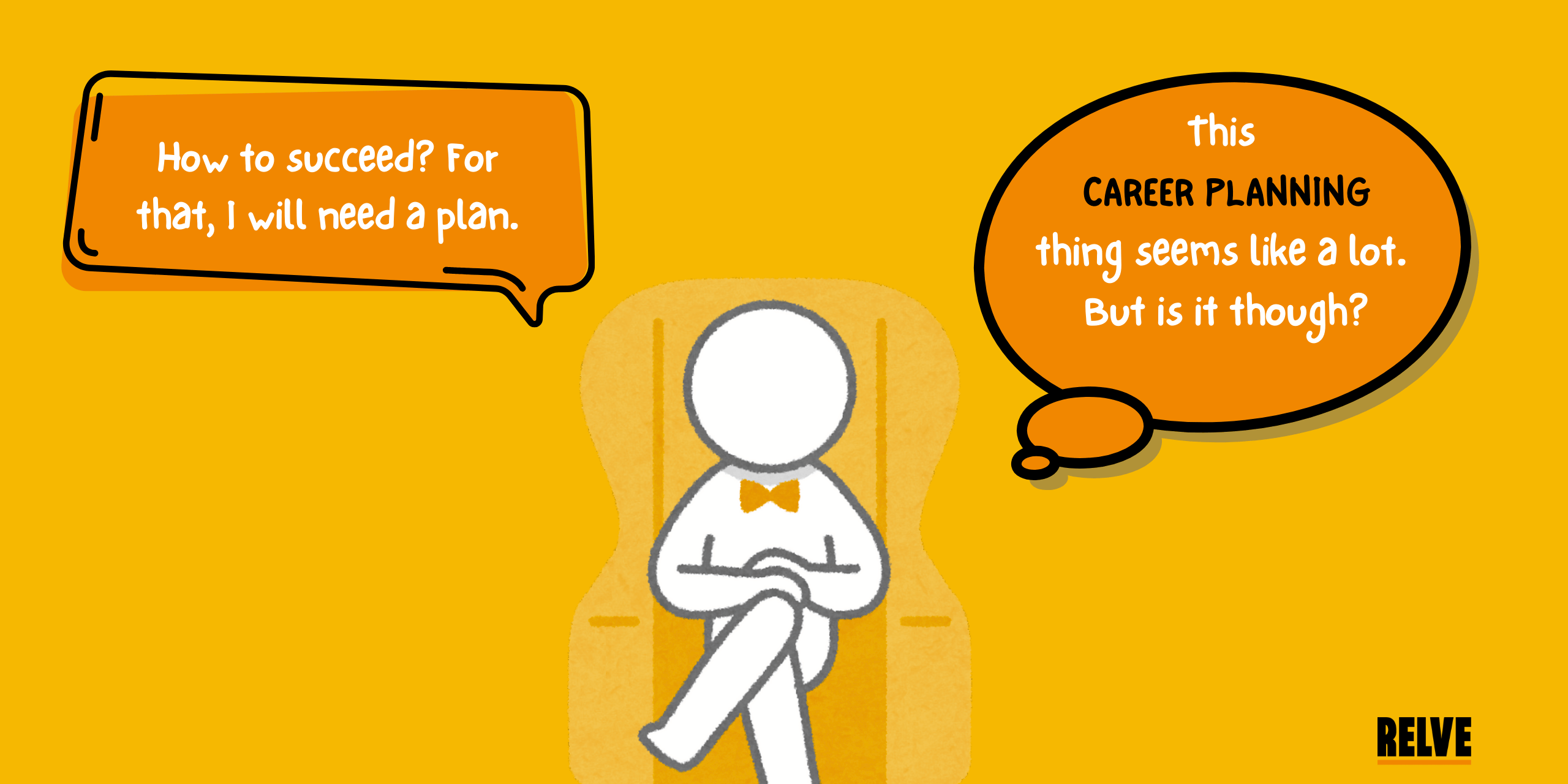In today’s fast-evolving job market, career planning is no longer a luxury—it’s a necessity. Whether you’re a recent graduate, a mid-career professional seeking growth, or someone contemplating a career shift, having a well-defined career plan can make all the difference. So, what is career planning? To build a fulfilling and sustainable career, you must align your aspirations with market demands and personal strengths.
With the right approach, career planning can be a game-changer in achieving long-term success. So, let’s start mapping out your future right NOW!
What is Career Planning?

Career planning is a structured process that helps individuals set professional goals, explore potential career paths, and develop strategies to achieve success. It’s more than just deciding what job you want; it’s about creating a long-term vision that aligns with your interests, skills, and market demands.
Key Aspects of Career Planning:
Goal Setting: Identifying short and long-term objectives
Skill Assessment: Pin down strengths and weaknesses and other areas for improvement.
Market Research: Understand industry trends, job prospects, and salary expectations.
Networking & Branding: Connect with professionals to build a strong personal brand for yourself.
Continuous Learning: Keep upskilling and adapt to new opportunities.
By inculcating these elements into your career planning will not just drift you from one job to another but it will help you navigate your professional journey in the right direction.
Components of Career Planning
A successful career plan includes several important components that guide decision-making and goal achievement.
- Career Goals – Keep clearly defined objectives based on personal interests and industry demands.
- Market Research – Understanding job trends, required skills, and future growth prospects is necessary.
- Skill Assessment: Look for gaps and find ways to develop necessary expertise.
- Networking & Mentorship: Connect with professionals and seek guidance for advancement in career.
- Action Plan: Design a structured roadmap with specific steps, deadlines and learning opportunities.
These components ensure your career planning process is strategic, adaptable, and result-driven.
Why is Career Planning Important?
Through the lens of human longevity, the future of work becomes inextricably tied to the future of learning. In a 100-year work life, we may find ourselves in a state of continuous pivots—20 to 30 job transitions might become the new normal. Ongoing skill development will become a way of life.
Michelle Weise, Long Life Learning
Effective career planning gives long-term stability and opens doors for better opportunities. Here is why it is essential:
Benefits of Career Planning:

- Increase Job Satisfaction
- Enhances Career Growth
- Improves Decision-Making
- Minimizes Career Uncertainty
- Boosts Financial Security
Steps in the Career Planning Process

The process involves a systematic approach to understanding, setting, and achieving career goals. Tread on to these steps to have a successful career roadmap:
1️⃣ Self-Assessment
Assess your strengths, weaknesses, interests, and values.
2️⃣ Explore Career Options
You can conduct research about different industries through job market data available on Glassdoor and LinkedIn and informational interviews with professionals in your industry.
3️⃣ Set SMART Career Goals
Your career goals should be:
- Specific – Clearly define what you want to achieve
- Measurable – Track progress and milestones
- Achievable – Set realistic targets
- Relevant – Align goals with market demand
- Time-Bound – Establish deadlines for completion
4️⃣ Develop an Action Plan
You should break down your plan into actionable steps like:
- Enrol in relevant courses and certifications.
- Gain experience through internships and freelance projects.
- Increase your networking.
5️⃣ Monitor and Adapt
Regularly review your progress and adjust goals based on industry trends.
Self-Assessment Techniques
To set a strong foundation for your career, you need to know what your strengths, interests, and values are. Get your hands on these practical-assessment tools:
- Personality Tests: Such tools help you get align with your career choices with natural traits.
- Skills Inventory: These tools help you identify your strongest and weakest skills.
- Interests Assessments: Determine fields that excite and motivate you.
- Work Values Assessments – Clarifies what aspects of work are most important to you.
Habits are not as simple as they appear. As I’ve tried to demonstrate throughout this book, habits—even once they are rooted in our minds—aren’t destiny. We can choose our habits, once we know how.
Charles Duhigg, The Power of Habit
Self-assessment helps you make informed career decisions and align your job choices with your strengths and aspirations.
You do not rise to the level of your goals. You fall to the level of your systems.
James Clear, Atomic Habits
Questions to Ask When Evaluating Career Options:

Creating an Effective Career Plan
Once you have assessed your skills, researched career options, and set your goals, the next step is to draft a career plan. This structured document outlines the steps you need to take to achieve your professional aspirations.
Key Elements of a Career Plan:
- Long-Term Career Goals – Where do you see yourself in 5, 10, or 20 years?
- Short-Term Milestones – What immediate steps will help you reach your long-term goals?
- Required Skills & Education – Identify gaps in your knowledge and plan for courses, certifications, or degrees.
- Networking Strategies – List professionals, mentors, and industry groups that can help you grow.
- Action Timeline – Set deadlines for each step to track progress and maintain momentum.
Example Career Plan Template:
| Goal | Action Step | Deadline | Resources Needed |
|---|---|---|---|
| Earn a promotion | Complete a leadership course | 6 months | Online courses, mentorship |
| Improve coding skills | Master Python & JavaScript | 3 months | Udemy, YouTube tutorials |
| Expand professional network | Attend 3 industry conferences | 1 year | LinkedIn, networking events |
Personal Branding and Its Role in Career Success
Personal branding is just as important as skill development in today’s digital age. A strong personal brand showcases your expertise, attracts opportunities, and helps you stand out in a competitive job market.
Identity change is the north star of habit change.
James Clear, Atomic Habits
How to Build a Strong Personal Brand:
- Update Your LinkedIn Profile – Use a professional photo, write a compelling summary, and highlight achievements.
- Create and Share Content – Publish posts or articles on industry trends to showcase thought leadership.
- Participate in Networking – Join professional groups, attend industry events, and participate in online discussions.
- Develop a Personal Website or Portfolio – Showcase your work, testimonials, and career achievements.
- Maintain Consistency – Ensure your online presence aligns with your professional goals.
Benefits of Personal Branding:
- A well-crafted personal brand attracts recruiters and industry connections.
- Demonstrates expertise and positions you as a thought leader in your field.
- Expands job prospects and enhances professional growth.
- Connects you with mentors, peers, and potential employers.
Overcoming Common Barriers to Career Planning
Despite having a solid career plan, various challenges can arise that hinder career growth. Here’s how to address them:
Common Career Planning Hurdles:
- Hurdle: Fear of Change
- Solution: Take small steps like updating your resume, taking a new course or finding a mentor.
- Hurdle: Lack of Resources
- Solution: Use free learning platforms to upskill.
- Hurdle: Uncertainty About Career Path
- Solution: Explore multiple fields through internships, job shadowing, and informational interviews.
- Hurdle: Lack of Motivation
- Solution: Set mini-goals, track progress, and celebrate small achievements to stay motivated.
- Hurdle: Industry Changes and Job Market Fluctuations
- Solution: Continuously upskill and stay updated with industry trends to remain competitive.
No matter what your ability is, effort is what ignites that ability and turns it into accomplishment.
Carol Dweck, Mindset: The New Psychology of SuccesS
How to Navigate a Career Change Successfully:
- Identify Transferable Skills – Highlight skills from your previous job that apply to your new field.
- Upskill & Reskill – Take online courses or get certifications in your desired industry.
- Network Strategically – Connect with professionals in your target field through LinkedIn and networking events.
- Gain Experience – Work on side projects, freelance, or intern to build credibility in your new field.
- Update Your Resume & Personal Brand – Tailor your resume and online presence to reflect your new career path.
Steps for a Smooth Career Transition:
- Self-Reflection
- Research Opportunities
- Leverage Mentorship
- Start Small
- Stay Persistent
Conclusion
Planning your career is a lifelong process that needs continuous learning, adaptability, and strategic decision-making. No matter if you are starting as a fresher, aiming for a promotion, or transitioning to a new field, a well-structured career plan helps you to stay ahead in today’s dynamic job market.
If you believe you can change—if you make it a habit—the change becomes real. This is the real power of habit: the insight that your habits are what you choose them to be.
Charles Duhigg, The Power of Habit
With the right mindset and planning, your dream career is within reach! Start taking action today, and watch your professional journey unfold.
